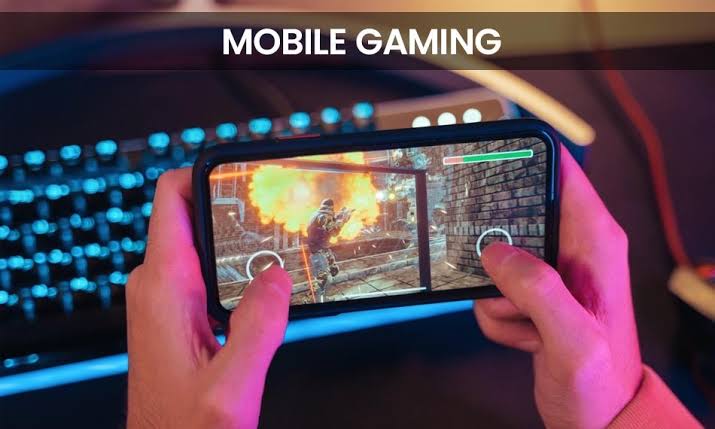This level of convenience has opened up gaming to broader audience. People who might not have considered themselves gamers. Now engage in gaming activities regularly, thanks to ease of access provided by smartphones. Additionally app stores on these devices offer vast array of games. Catering to all tastes and preferences. From casual puzzles and word games to complex strategy and action titles.
Technological Advancements
The technological advancements in smartphones have played a crucial role in enhancing the gaming experience. Modern smartphones are equipped with powerful processors, high-resolution displays, and advanced graphics capabilities that rival those of dedicated gaming consoles. These features enable developers to create games with stunning visuals, smooth animations, and intricate details that were once only possible on high-end gaming systems.
High Refresh Rate Displays
Many contemporary smartphones feature high refresh rate displays, which significantly improve the visual experience of gaming. Screens with refresh rates of 90Hz, 120Hz, or even higher provide smoother motion and reduce screen tearing, making games feel more responsive and visually appealing. This is particularly important in fast-paced games where quick reactions and smooth animations are critical.
Advanced Graphics Processing Units (GPUs)
The inclusion of advanced GPUs in smartphones has transformed mobile gaming. These GPUs support complex 3D graphics, realistic textures, and dynamic lighting effects, creating immersive game worlds that draw players in. Games like "PUBG Mobile" and "Genshin Impact" showcase the graphical prowess of modern smartphones, offering experiences that rival those on traditional gaming platforms.
Augmented Reality (AR) and Virtual Reality (VR)
Smartphones have also paved the way for the integration of AR and VR into gaming. AR games, such as "Pokémon GO," use the smartphone’s camera and sensors to blend virtual elements with the real world, creating a unique and engaging experience. Meanwhile, VR gaming on smartphones, although still in its early stages, promises to deliver immersive experiences that transport players to entirely new environments.
Social Connectivity
Smartphones have redefined the social aspect of gaming, making it easier than ever to connect and play with others. Social connectivity in gaming has evolved from local multiplayer sessions to global online communities, thanks to the internet and smartphones.
Multiplayer Gaming
Many smartphone games offer multiplayer modes, allowing players to compete or collaborate with friends and strangers from around the world. Games like "Among Us" and "Clash of Clans" have become global phenomena due to their engaging multiplayer experiences. These games foster a sense of community and competition, encouraging players to interact, strategize, and form lasting friendships.
Social Media Integration
Smartphones seamlessly integrate with social media platforms, enabling players to share their gaming achievements, live-stream their gameplay, and engage with other gamers. This integration has created a vibrant online ecosystem where players can showcase their skills, participate in gaming challenges, and stay updated on the latest trends and updates in the gaming world.
Community Building
The ease of communication provided by smartphones has also facilitated the growth of gaming communities. Platforms like Discord and Reddit host countless gaming groups where players can discuss strategies, share tips, and organize gaming sessions. These communities foster a sense of belonging and provide a space for gamers to connect over shared interests.
Monetization and Business Models
Smartphones have also introduced new monetization strategies and business models in the gaming industry. The freemium model, where games are free to download but offer in-app purchases, has become incredibly popular. This model allows developers to reach a wider audience while generating revenue from players who choose to make purchases.
In-App Purchases
In-app purchases enable players to buy virtual items, currency, or additional content within the game. This model has proven to be highly lucrative, with games like "Candy Crush Saga" and "Fortnite" generating significant revenue from microtransactions. While this approach has sparked debates about fairness and the potential for exploitative practices, it has undeniably changed the landscape of mobile gaming.
Advertisements
Many free-to-play games incorporate advertisements as a revenue stream. These ads can range from banner ads to video ads that players watch in exchange for in-game rewards. While ads can sometimes disrupt the gaming experience, they provide a way for developers to offer their games for free and still generate income.
Subscription Services
Subscription-based models are also gaining traction in the mobile gaming industry. Services like Apple Arcade and Google Play Pass offer a curated selection of games for a monthly fee, providing an ad-free experience and access to premium titles. These services cater to players who prefer a more streamlined and high-quality gaming experience.
Enhancing User Experience
Ultimately, the role of smartphones in gaming boils down to enhancing the overall user experience. The combination of accessibility, technological advancements, social connectivity, and innovative business models has created a rich and diverse gaming ecosystem.
Customization and Personalization
Smartphones allow for a high degree of customization and personalization in gaming. Players can tailor their gaming experiences to suit their preferences, whether it’s through customizing controls, adjusting graphics settings, or choosing specific game genres. This flexibility ensures that players can enjoy games in a way that best fits their individual needs.
Regular Updates and Improvements
The mobile gaming industry is characterized by rapid updates and improvements. Developers frequently release updates that introduce new content, fix bugs, and enhance gameplay mechanics. This constant evolution keeps games fresh and engaging, encouraging players to return and discover new features.
Conclusion
The impact of smartphones on the gaming experience is undeniable. They have transformed gaming from a niche hobby into a mainstream activity accessible to millions worldwide. By providing convenience, leveraging technological advancements, fostering social connectivity, and introducing innovative business models, smartphones have enhanced the way we play games. As technology continues to advance, the role of smartphones in gaming is likely to grow even further, promising exciting developments and richer experiences for gamers everywhere.
